Inside a Drive-Through Tourist Trap That Tore Baby Bears From Mothers
Update (March 4, 2024): After our undercover investigation into Bear Country U.S.A. revealed that baby bears are violently torn away from their mothers and that sick animals who languish in pain were just part of business as usual, the U.S. Occupational Safety and Health Administration visited the callous roadside zoo and issued a hazard alert, warning that conditions at the facility are “likely to cause death or serious physical harm,” as it “did not ensure employee protection from apex predators” when stealing newborn cubs from their anguished mothers.
This isn’t the first time that Bear Country U.S.A. has been cited following our investigation. Acting on evidence we gathered, the U.S. Department of Agriculture (USDA) cited the roadside zoo in August 2023 for multiple violations of the federal Animal Welfare Act. According to the USDA report, a representative of the facility admitted to inspectors that it had used fireworks to separate mother bears from their cubs and that staff “had been recorded suggesting handling the bear cubs in an aggressive and inappropriate manner, such as ‘holding their muzzles,’ ‘pinching their noses,’ and ‘kicking or pushing them away.’” The inspectors emphasized that all these practices “can cause trauma, behavioral stress, physical harm, or unnecessary discomfort” to the bears involved—and Bear Country U.S.A.’s representative claimed that these abusive methods will no longer be used. Based on our investigation’s evidence, USDA officials also cited the roadside zoo for allowing lynx to escape their enclosures twice in little more than a month. Join us in urging this tourist trap to end its cruel breeding program and send the animals to reputable facilities before more cubs face such horrific trauma.
PETA is urging Bear Country U.S.A. to end its barbaric breeding program altogether and to send all the animals to a reputable sanctuary for the safety of everyone at the facility.
Originally posted on July 29, 2023:
In 2023, a PETA investigator worked undercover at Bear Country U.S.A., a roadside zoo in South Dakota where supervisors tore families apart, instructed staff to kick bear cubs, and denied elderly animals timely veterinary evaluation.
See what PETA’s undercover investigator caught on video to learn why a stop at Bear Country U.S.A. supports a lifetime of misery for animals.
‘A Little Bit Bad on the Morals’
A mother’s worst nightmare is to have her baby taken from her, but at Bear Country U.S.A., infants were ripped from their nurturing mothers at just 1 to 2 months old in order to be put on display.
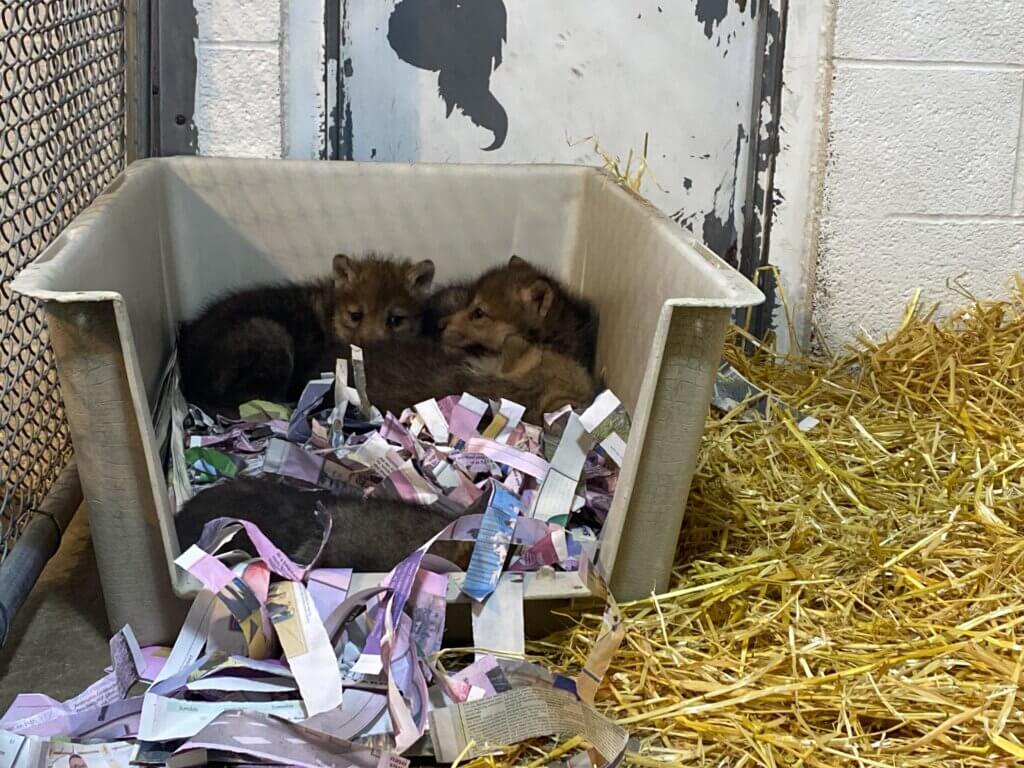
Terrified 4-week-old wolf puppies huddled together and trembled after a supervisor stole them from their mothers. He admitted to throwing firecrackers into the den to scare the protective mothers away.
Staff explained how they traumatized mother bears by jamming a “huge” fiberglass pole and tossing explosive bottle rockets into the dens to scare them out, and they ran chainsaws without the chain in order to drown out the sound of the newborn bears wailing for their mothers as workers shuffled the cubs into a van.
“A little bit bad on the morals, you know, stealing children and taking them to a white van.”
—Bear Country U.S.A. grounds crew member
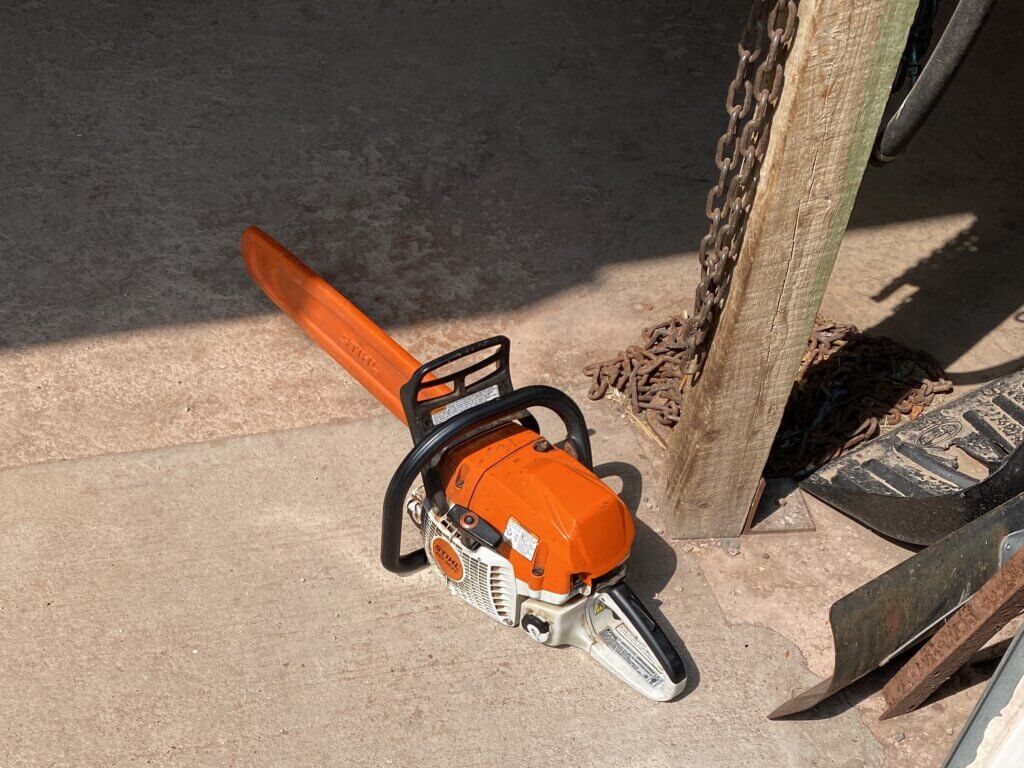

In nature, black bear cubs spend nearly two years by their mother’s side, learning foraging skills from her, playing with their siblings, and exploring the alpine habitats and forests they call home.
The 11 bear cubs born this winter at Bear Country U.S.A. were taken when they were no more than 8 weeks old, before they were even weaned—a crucial time in their development, when what they needed most was their mothers’ comfort and protection.
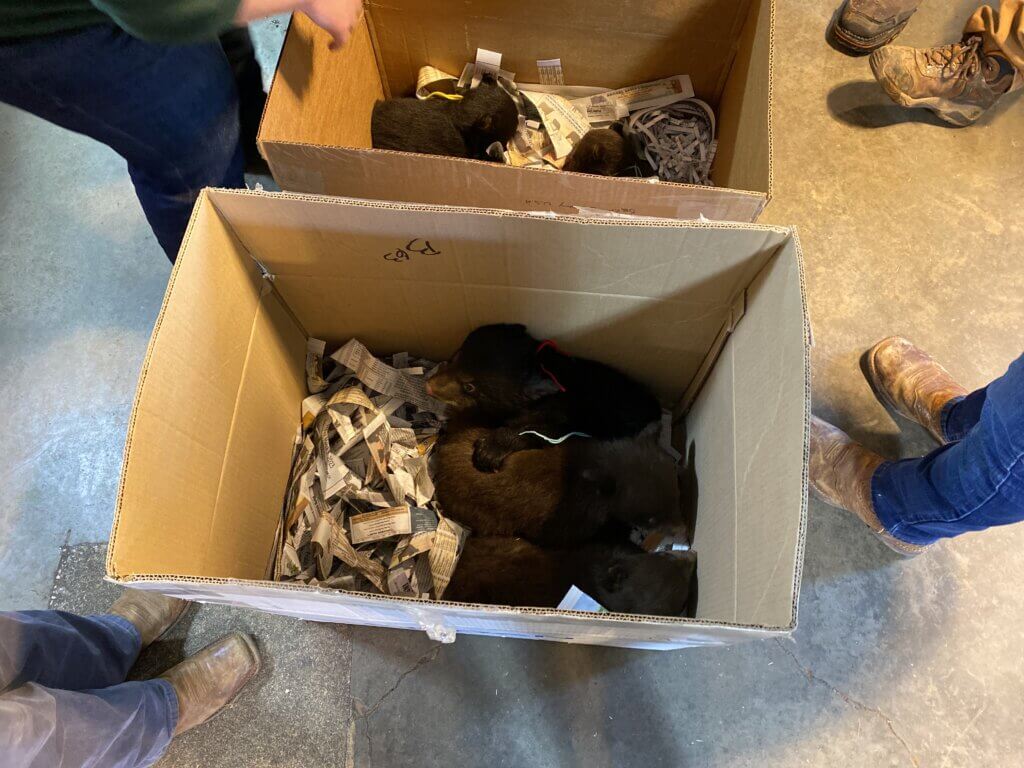
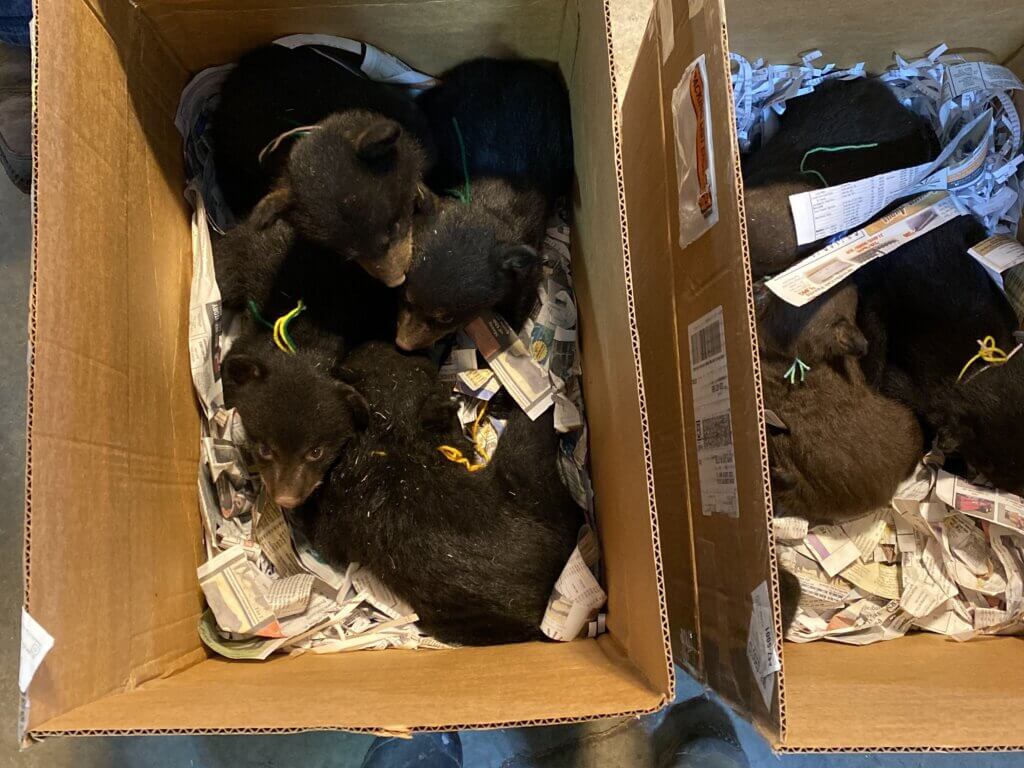
Workers kept cubs in cardboard boxes for weeks. Multiple cubs were reluctant to eat and cried, bit, scratched, and otherwise struggled when they were held, out of apparent frustration or distress. A senior worker hoped the cubs would not “turn into dicks.”
‘Kick Them Down’
As the cubs grew and naturally became more rambunctious, a supervisor instructed PETA’s investigator to “kick them down” and to “pinch their nose as hard as you f–king can” if they bit.
PETA’s investigator was bitten and scratched on the arms by bear cubs. At least three other workers recounted being injured by an adult bear, cubs, and a pine marten. Smokey, a bear, “rip[ped] out a chunk” of one worker’s leg, which “was bleeding pretty bad.” Another bear swatted at and lacerated the worker’s heel. A cub scratched the supervisor on her face. Another cub “beat the shit out of” a third worker’s face, “cut [her] chin in both the corners of [her] lips,” and “bit [her] leg through [her] jeans,” which left her bleeding.
Staff had no respect for the animals, who instinctively responded with aggression when they were frightened and weren’t able to flee as they would have in nature.
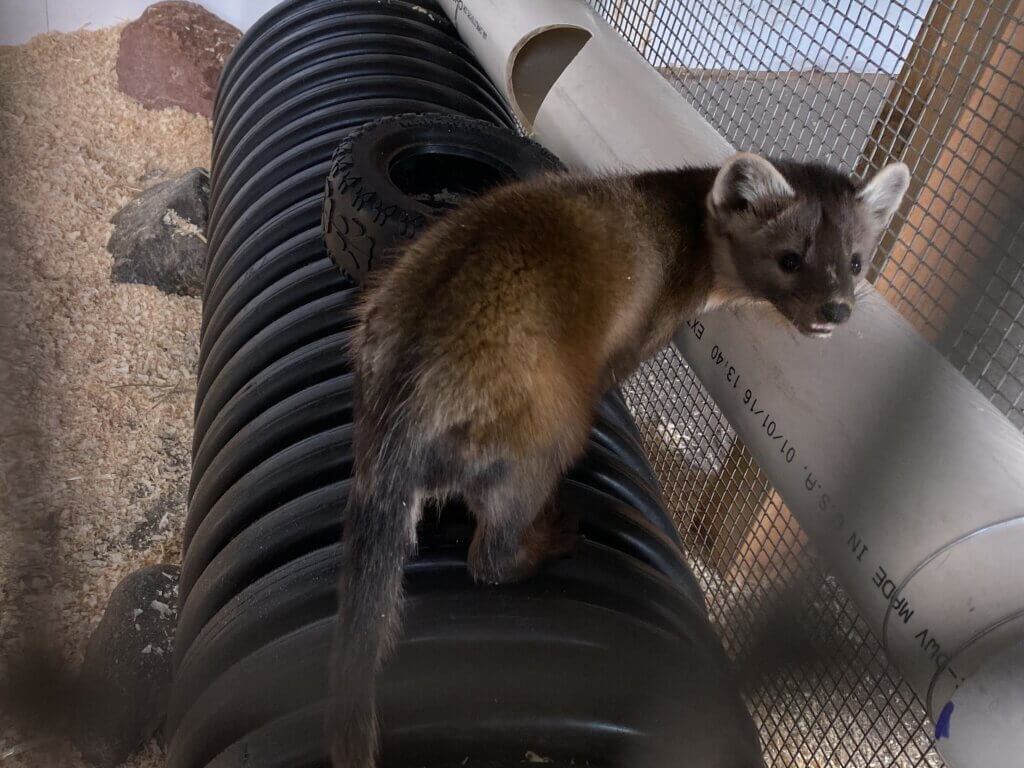
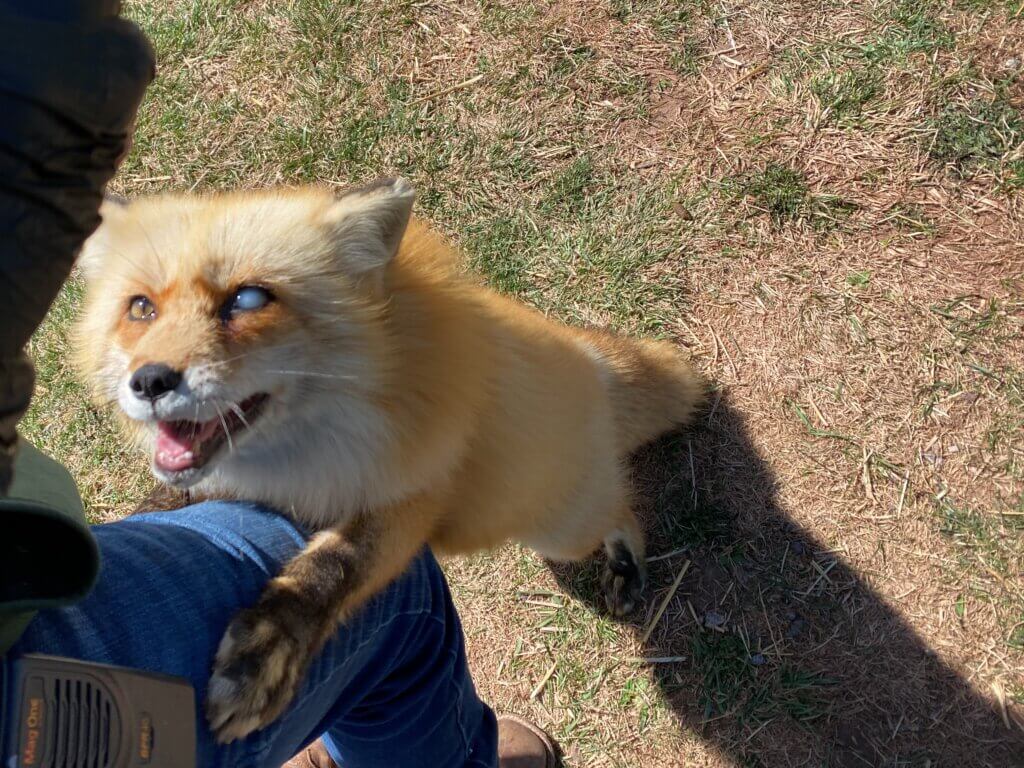
A worker called Pablo, a pine marten, an “asshole” after he “bit the shit out of” her and “tore the hell out of” her arm. She said animal bites are “something you … get used to.” She referred to Bella, a red fox, as a “bitch” when she bit the worker’s shoe.
Locals gave ailing horses to Bear Country U.S.A., and staff killed and butchered them and then fed their remains to animals. PETA’s investigator saw a worker shoot one horse three times.
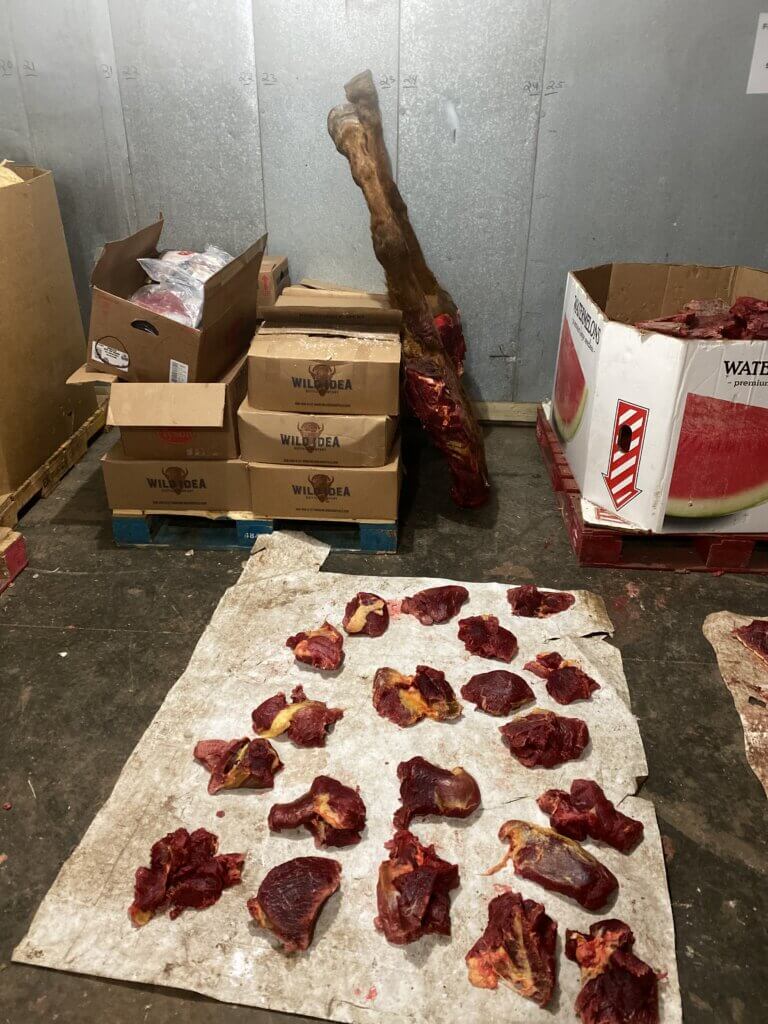
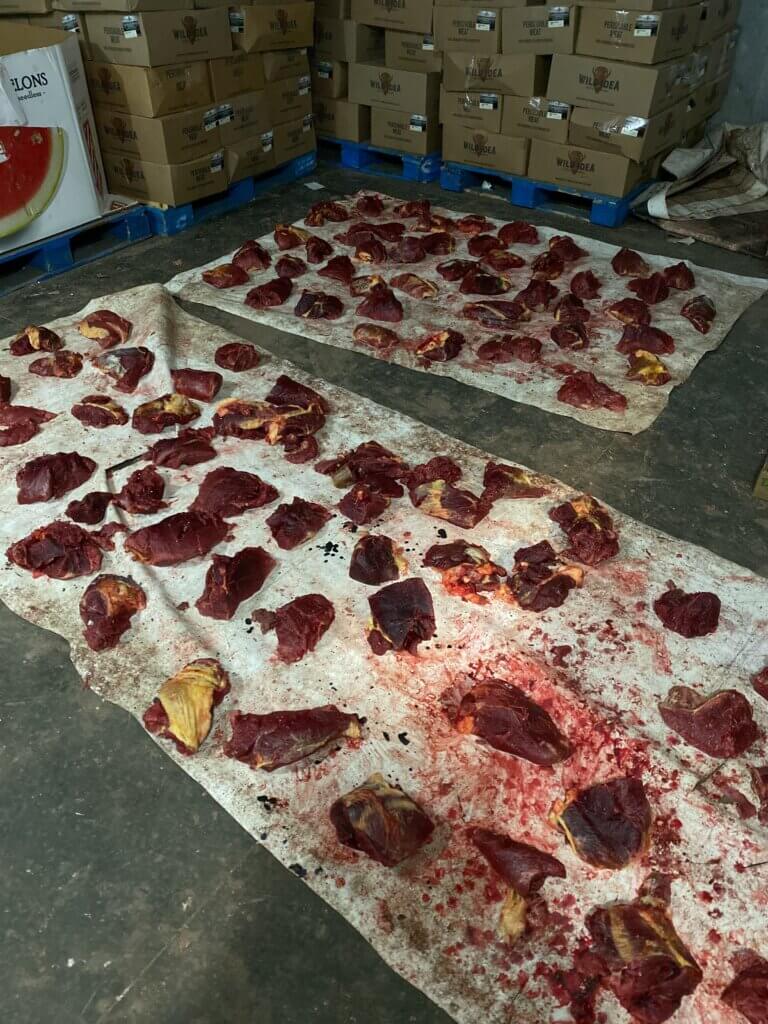
‘She’s Probably Going to Be Dying Soon’
Animals in deteriorating health were denied adequate veterinary care. Mama—a thin, hunched 17-year-old red fox—was missing a lot of hair. A supervisor and a worker repeatedly said she was “pulling her hair out” and “doing it to herself” but only tried to treat Mama for possible mites and said, “She’s probably going to be dying soon.” Staff suspected she had arthritis but hadn’t provided her with any pain treatment.
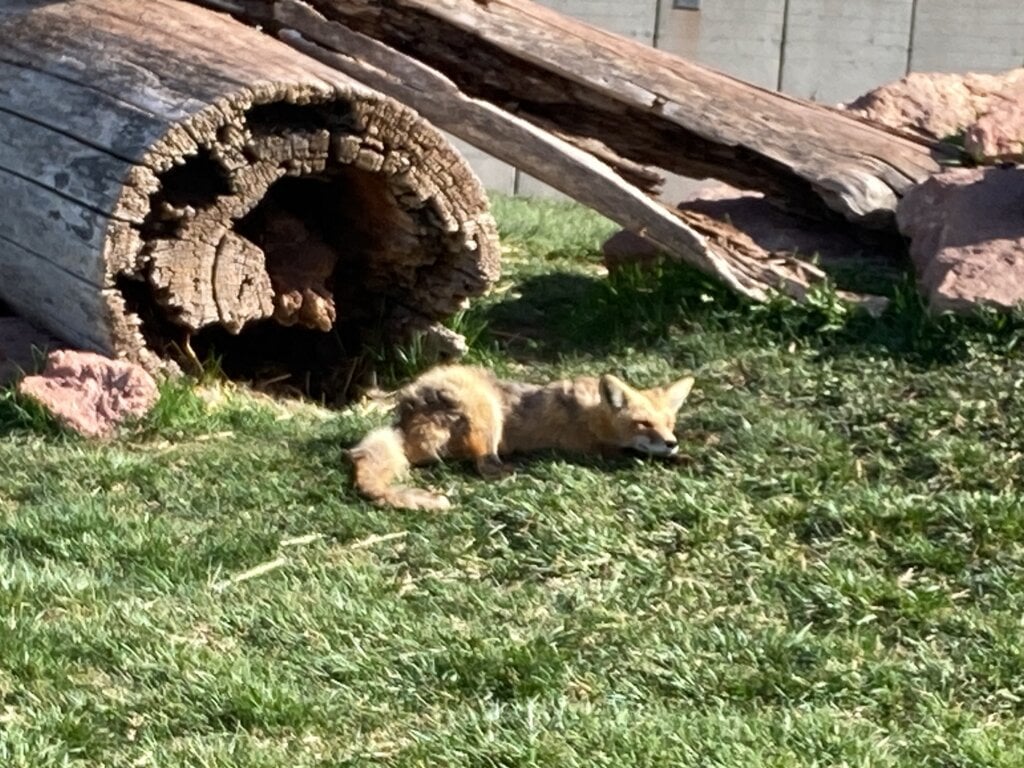
The supervisor finally took Mama to a veterinarian nearly 11 weeks after PETA’s investigator first pointed out her obvious suffering. She was euthanized and found to have a bacterial skin infection and widespread cancer.
“Age is not a disease. Hair loss and weight loss are symptoms of an underlying condition that needs to be investigated in order to be appropriately treated and/or managed, not just dismissed or brushed off as ‘old age.’”
—Dr. Monica Bando, captive wildlife veterinarian and senior lecturer at the University of Central Lancashire School of Veterinary Medicine
Other aging animals at Bear Country U.S.A. were denied adequate care. Even though the supervisor said, “All of the bears in the drive-through are super-old” and “could die any minute,” the animals were not medicated for arthritis or other age-related debilities.
The supervisor often speculated on the cause of animal health concerns and administered anti-parasite medications as a cure-all solution based on assumptions, apparently without consulting with a veterinarian.
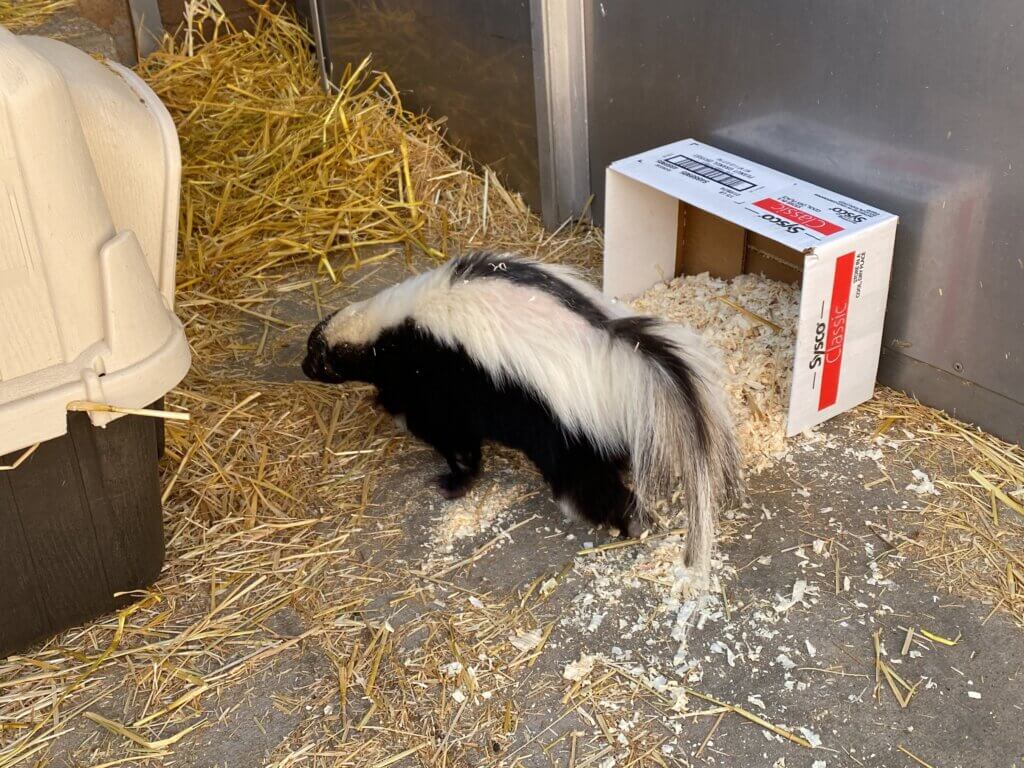
PETA’s investigator observed areas of hair loss on a skunk named Curly’s back and tail. The supervisor speculated that it might have been related to Curly’s diet, but the facility manager ordered that he simply be treated for possible mites. They did not seek veterinary evaluation for Curly or get medical advice on the potential causes or appropriate treatments for his condition.
‘He’s Bored, and He’s Lonely’
Pablo the pine marten was held in solitary confinement, tossed his head, paced, and was missing hair. A worker attributed the stereotypic behavior to his being “bored” and “lonely.” PETA’s investigator pressed the supervisor to give the animal something to do, but with minimal enrichment in the small enclosure to which he was confined and stressful changes to his surroundings, his abnormal repetitive behavior persisted.
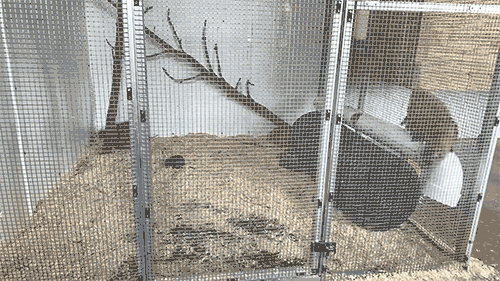
Lynx escaped from an exhibit twice. After the first escape, no changes were made to the exhibit to ensure its safety. After the second escape, the lynx were moved to a much smaller enclosure, where they exhibited signs of distress. Pablo was shifted to a smaller enclosure next to the lynx, and he began self-mutilating by ripping hair out of his tail.
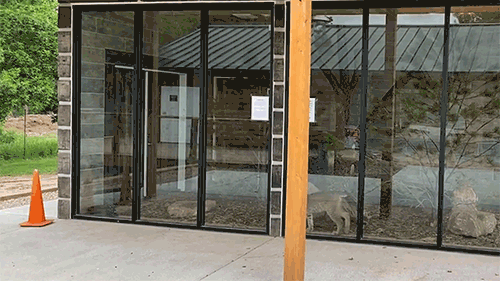
You Can Help Stop This!
PETA is calling on law-enforcement and regulatory agencies to investigate apparent animal neglect, animal welfare, and worker safety violations at Bear Country U.S.A. Join us in asking this tourist trap to end its cruel breeding program and send the animals to reputable facilities.
Please send polite comments to:
Mike Casey
Owner and Operator, Bear Country U.S.A.
[email protected]
Then, urge Bear Country U.S.A.’s remaining promoters not to support the roadside zoo in the future.
Share your gratitude with the eyewitness who exposed these cruel practices at Bear Country U.S.A. If you have what it takes to conduct undercover investigations and expose suffering like this, we want to hear from you.
